Handling the themes of abuse and consent with sensitivity was key for the team behind the Amazon tennis drama – especially when working with such a young cast and crew
Production company: World Productions
Commissioners: Johnathan Lewesley; Hannah Ardali-Blyth
Length: 6 x 50 minutes
TX: Amazon Prime Video from 21 July
Executive producers: Jake Lushington; Hania Elkington; Eva Riley; Toby MacDonald
Directors: Eva Riley; Toby MacDonald
Producer: Natasha Romaniuk
Post house: Halo
VFX: Flying Colour Company
In a key scene in Fifteen-Love’s first episode, former tennis prodigy Justine Pearce (newcomer Ella Lily Hyland) takes on the man who coached her, Glenn Lapthorn, (Poldark’s Aidan Turner) in a good-spirited show match.
Almost immediately, the wrist injury that prematurely ended her career flares up – but so do deeper wounds, ones that call into question the nature of their previous relationship, and stir themes of unhealed trauma, power abuse and consent.
The series was created by Hania Elkington and produced by World Productions (Vigil; Line Of Duty) and it took a mere one-page outline for Amazon to give the series the green light in late 2019 – a testament to the power of a compelling idea and proven record.
Since then, its themes have only become timelier, as female sports stars such as Pam Shriver, Emma Raducanu and Naomi Osaka have spoken up about abuse, coercion, mental health issues and the pressures of pro tennis.
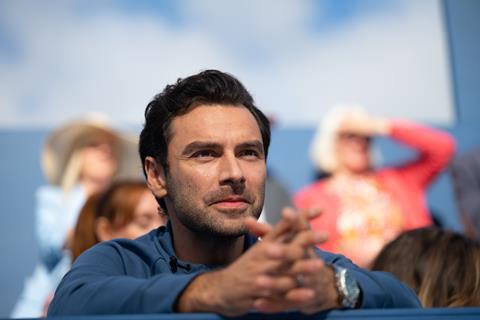
With subject matter that deals with exploiting vulnerability, it was only fitting that the production team took extra care in supporting their up-and-coming cast and crew – of which there were many.
The six-parter was Elkington’s first time creating and writing a series solo, having co-created The Innocents on Netflix. Eva Riley, director of the first three eps, only had smaller-scale projects under her belt. The tennis hotshots in the cast were relatively new too: it was Hyland’s first major role, and the wider cast included emerging stars Harmony Rose Bremner and Maria Almeida.
Giving rookies a chance
A big-budget drama’s success often relies on household names, but uncovering new talent is a necessary part of the process, says Jake Lushington, executive producer for World Productions. “As soon as your leading character is under 30, the chances are they’re not going to be that experienced and you’ll be looking for new talent,” he says.
“The appetite for taking big chances depends on the confidence of the production company, the directors and the broadcasters. Amazon was great in this regard – between Harmony, Maria and Ella, there was very little on-screen experience.”
Rigorous auditions involving callbacks, chemistry reads and plenty of time helped to manage the risk.
“You can’t just expect to find people in a week,” says Lushington. “You can cast men in their 50s quickly, because there are a lot of them and we know what they can do. Otherwise it’s a process.”
Lucky, then, that they found Hyland – a graduate of the Lir Academy in Dublin – with relative ease.
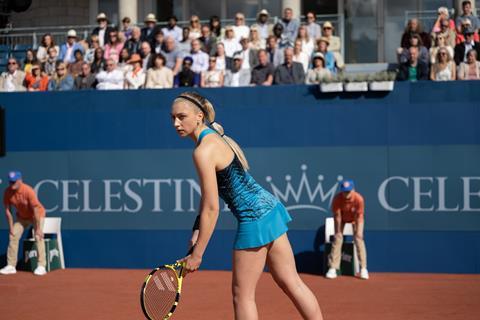
Elkington says: “When we saw Ella, the whole executive team, our casting director, Lauren [Evans] and her team, said, ‘that’s her’, which doesn’t really ever happen, particularly for somebody with little experience. I’m grateful we found someone who could give our lead character singularity, drive, flavour and passion.”
For Hyland, stepping up to the role was “terrifying at the beginning”. She cites open communication as important “so you don’t worry about asking for what you need. And whenever there were tough scenes, our ADs would make sure everything was properly set up so I felt safe to go there emotionally”.
“Someone who’s 23 on a first big job probably won’t tell you if they’re not happy. So you have to check in again and again”
Jake Lushington, executive producer
This was a conscious decision on the production’s part, says Lushington. “The AD team have to make [young talent] feel secure, and pay attention to them. If you have someone like Jim Broadbent, you’ll know when they’re unhappy so you don’t need to worry about that. If you have someone who’s 23 and it’s a big job for them, they probably won’t tell you. So you have to check in again and again.”
The newer actors were even front of mind when casting Turner, who had recently completed The Suspect with World Productions.
Lushington explains: “We were going to be in a situation with a lot of young, untried female talent, and it was quite challenging material. So apart from all of the skills and brilliance he brought to the role, I knew he’d also be somebody on set who would be careful, welcoming, professional and nurturing, and make these newer actors feel safe and secure.”
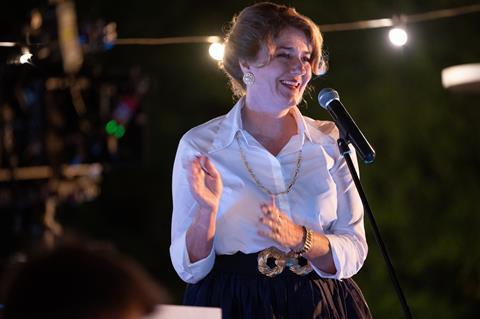
To prime Hyland and Turner for their lead roles, they and Riley met for a week of script-free character rehearsals ahead of the shoot “to take the anticipation and stage-brightness out of it”, as Lushington describes.
Fifteen-Love was Riley’s first big-budget production, and it was also her first time directing a project she hadn’t written. That allowed her to bring fresh ideas to the table. “Sometimes the cockiness of inexperience can be a good thing,” she says.
“When you’re new, you can just say, ‘this is what should happen’. Whereas if you’ve been doing it for a long time, you might think ‘that’s not what happens normally’. And for me, it was important to rehearse relationships more than rehearse scenes.”
During these improv sessions, both leads switched from their native Irish brogue and adopted their characters’ English accents as they played out vignettes of their history. To foster their coach-pupil relationship, Turner, who was once a semi-pro ballroom dancer, taught Hyland a routine. One day, they brought in movement director/ intimacy co-ordinator Louise Kempton, who facilitated an interpretive dance of their relationship.
Riley says: “It was mind-blowing to watch. I cried. It was beautiful to see how they express so much through movement.”
“We were all happy to collaborate. When you do that with a show, you end up with a stronger product in the end”
Hania Elkington, writer/executive producer
The impact of the rehearsals showed not only in Hyland’s confidence as soon as the cameras started rolling but also weighted their on-screen interactions with significance. In the first episode, when Justine sees Glenn’s reaction for the first time, “it’s a powerful moment, and you can feel there’s so much history and memories in their bodies”, says Riley.
Another aspect that allowed Riley to rise to the challenge was reuniting with Steven Cameron Ferguson and Abolfazl Talooni, the cinematographer and editor she’d worked with on previous projects. “That meant I didn’t feel alone,” she says.
Collaborative working
Across the production, there was a colloborative culture that helped everyone – both experienced or emerging – to feel supported. Elkington says: “We all afforded each other quite a lot of access to our slice of the pie. I wanted the directors to tell me their thoughts on the scripts, I wanted to talk to the actors about their roles. Eva and Toby were very generous about having me beetling around set.
“We all felt quite secure in what we were doing, and happy to collaborate in different ways. When you do that, you do end up with a stronger product in the end.”
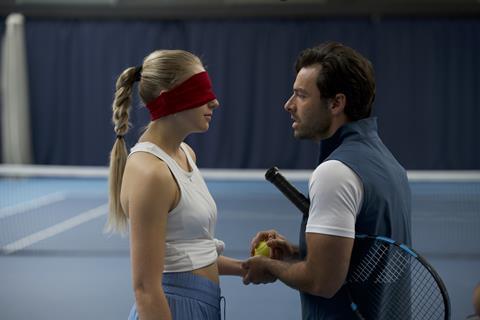
While the production benefited from having a healthy mix of experience and new perspectives, more can be done across the industry to support emerging talent, says Elkington. Encouraging diversity helps bring new voices to the fore, and the industry should carve out spaces where chances can be taken on new writers, she says.
“Script commissions are few and far between, even for established writers,” Elkington adds. “But a lot of young writers have day jobs to contend with – I certainly did for years, while I was writing in every crevice of time. It would be great if emerging writers were given different platforms so they can come up with strong ideas – to not only be recognised and connected, but also to be funded, so they get a chance to practice their craft and prove what they can do.”
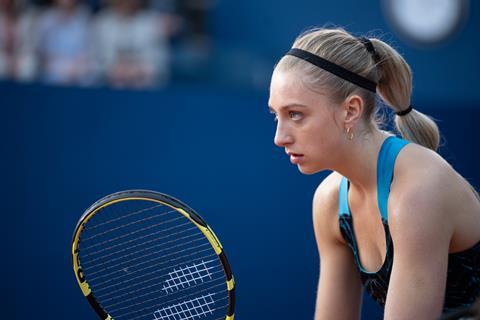
A clear feedback loop and pathway for progression are other initiatives that could encourage new talent, she adds. “A lot of writers end up writing treatments into a vacuum. If something doesn’t go ahead, they might think it’s because they’re not good enough. But that’s not necessarily the case.”
Mentorship schemes can help rising actors, says Hyland. “It’s a brilliant support system because it’s a pal whose experience you can use to inform your career – a lot of art is learned through experience.”
In the world of directing, Riley says, hiring on potential can foster creative output. “If someone has a good vision and something to offer, even if they haven’t done a lot, then give them a job. It’s what Hania and Jake did with me – I had a feature film, but it was low budget. They liked it enough to take a punt on me. And that’s where you get the most exciting work.”
GETTING ACES FROM ACTORS
Portraying the world of professional tennis brought unique challenges to Fifteen-Love, with producer World Productions more used to complicated death-defying sequences in the likes of The Suspect, The Bodyguard and Vigil than the world of competitive sport.
The challenges were twofold: the first was turning actors into tennis pros; the second was finding and repurposing tennis courts as the locations for Justine and Glenn’s world.
Commentator and former player Naomi Cavaday helped the actors morph into tennis players. They adopted an exercise regime to reflect the body shape of those in elite tennis, and mastered the movement of specific tennis strokes. Cavaday also choreographed the tennis rallies, and stayed on set to check the takes.
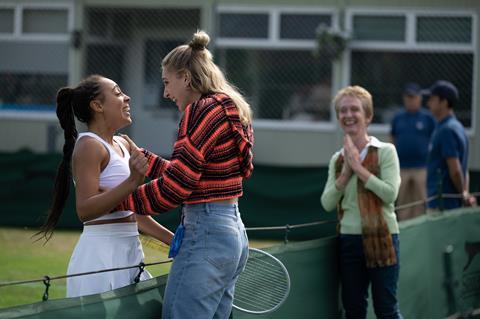
For the most part, they avoided body doubles. Instead, the actors played out the tennis scenes without a ball, which was added in later with CGI. Exec producer Jake Lushington explains: “It meant we could put the camera in places where we wouldn’t normally. We have scenes where the ball zings past the camera, so we shot something more visceral than even the best coverage of a real tennis match.”
When it came to locations, the cost of hiring out Wimbledon precluded its use. Instead, the production moved to Eastbourne, home of the second biggest set of grass courts in the UK. To recreate their version of the French Open, they chose clay courts at Craiglockhart University in Edinburgh, using CGI to increase its size.
Writer and exec producer Hania Elkington says: “Some of the shots that [co-director] Toby Macdonald pulled off [at these venues] are the definitive visuals of the series.”




















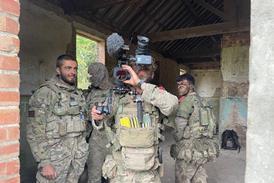


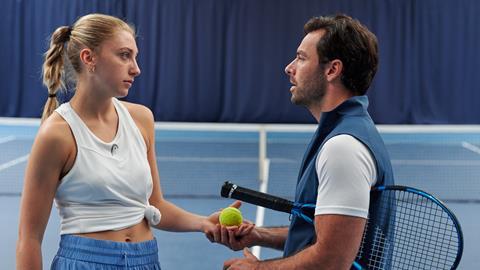






No comments yet